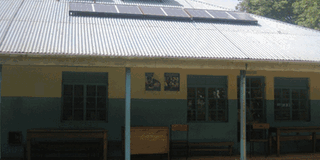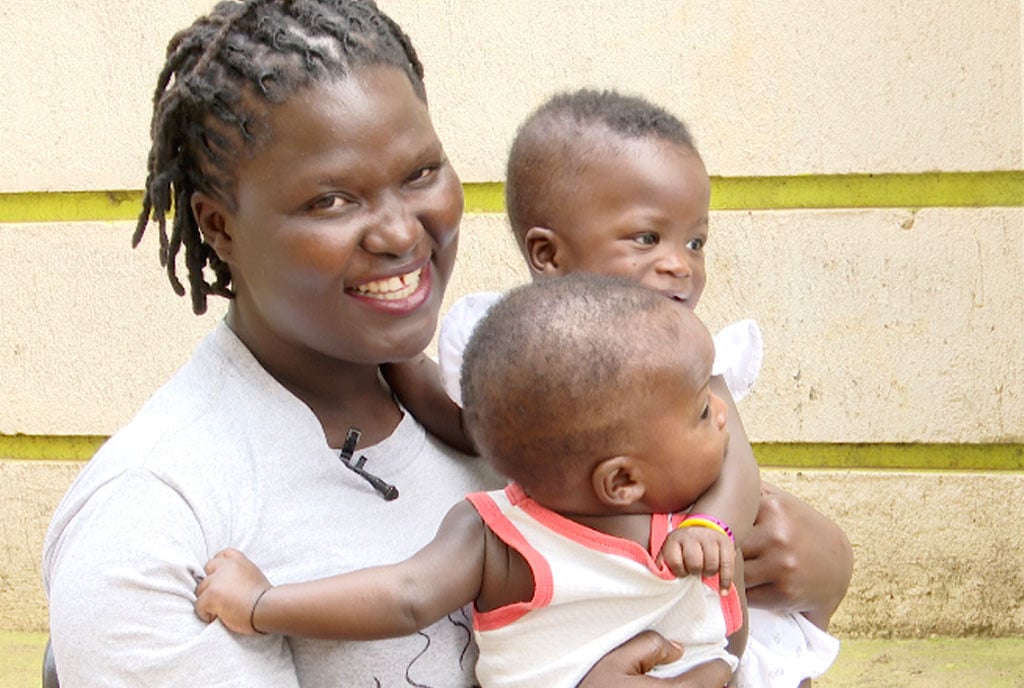Prime
Providing Namwendwa better health services

The health centre is now assured of power throughout after getting solar panels. PHOTO BY OPIO SAM CALEB.
The greatest challenge to health service delivery is accessibility, customer care and public relations of health workers. Patients shun health services preferring traditional health practitioners who handle them with utmost confidence yet oftentimes con them with mere psychological treatment.
The bigger picture though is that the working conditions alongside the unavailability of drugs undermine health service delivery. “Also, much as we are expected to offer good services, disparity in wages is de-motivating because how can you pay Shs900,000 to a senior four leaver who works with URA but give a medical graduate working 24 hours only Shs600,000,” asks the Kamuli District Health officer, Dr David Muzira, raising concerns about medical staff wages and inadequate staffing in relation to the health service delivery.
For now though, Namwendwa Health Centre IV in Kamuli will not be among the disgruntled units as it currently stands to benefit from its intensive lobbying and advocacy that attracted development partners to its rescue. Abacus Parental Drugs Ltd offered solar panels, drugs and computers to the health centre, with a call for popularisation of health service usage and maintenance.
The company director, Mr Ramesh Babu, who explained the act was under their Corporate Social Responsibility commitment to offer back to the public, urged that medicines and services reach the people, be well utilised and properly taken care of. The Health centre in Charge, Mr Moses Gangu, said that with the solar panels provided in the critical sectors of maternity and other wards, fridges, security, work and conservation of vaccines has been eased, made available and secure. Gangu said they had received 12 sets of solar panels, five computers and assorted drugs, mostly fluids.
He reported that intravenous fluids normal saline, dextrose etc used in drips and quinine injections were very vital yet unavailable that time, yet they had overflows of complicated malaria and dehydrated patients. “Without the fluids you could not give quinine. Before patients were scared of moving out, deliveries at night were difficult and finding veins in wards rather impossible rendering my workers apparently inefficient,” he reported with excitement.
Gangu also said that malaria, convulsions, anaemia accidents casualities, dental cases and higher STDs were major diseases in the health centre.
The computers at the departments have eased data and information documentation, with the assured power availability through the solar panels. Sr Rebecca Mainja said that the problem of vaccines getting wasted due to power failure is now history as there is a special solar power line to keep vaccines in recommended environment.
Ms Florence Nabirye said that sometime back, patients had to buy paraffin and candles during blackouts, fearing to move out because of abductions and the staff too feared to come out at night so health services were restricted. “I was surprised to see light when I came to deliver beyond midnight yet we left town when it was dark,” said Nabirye.
The Chief Administrative Officer (CAO) Kamuli, Ms Catherine Amal, pledged that the district will properly mark the solar panels to take care of them and provide both security and motivation to increase health service delivery use by the public.
“Handle patients with tender love and care, be available all the time and improve upon client relations, so that our people stop running to traditional birth attendants and practitioners,” she urged.
With the assistance, better service delivery has been observed and patients confidence built as drugs are now available.
The challenge however still remains on waste management, an open dumping site and a non functional theatre. With many patients now coming, the reception area is getting small and inadequate space for special clinics like ART need attention.




